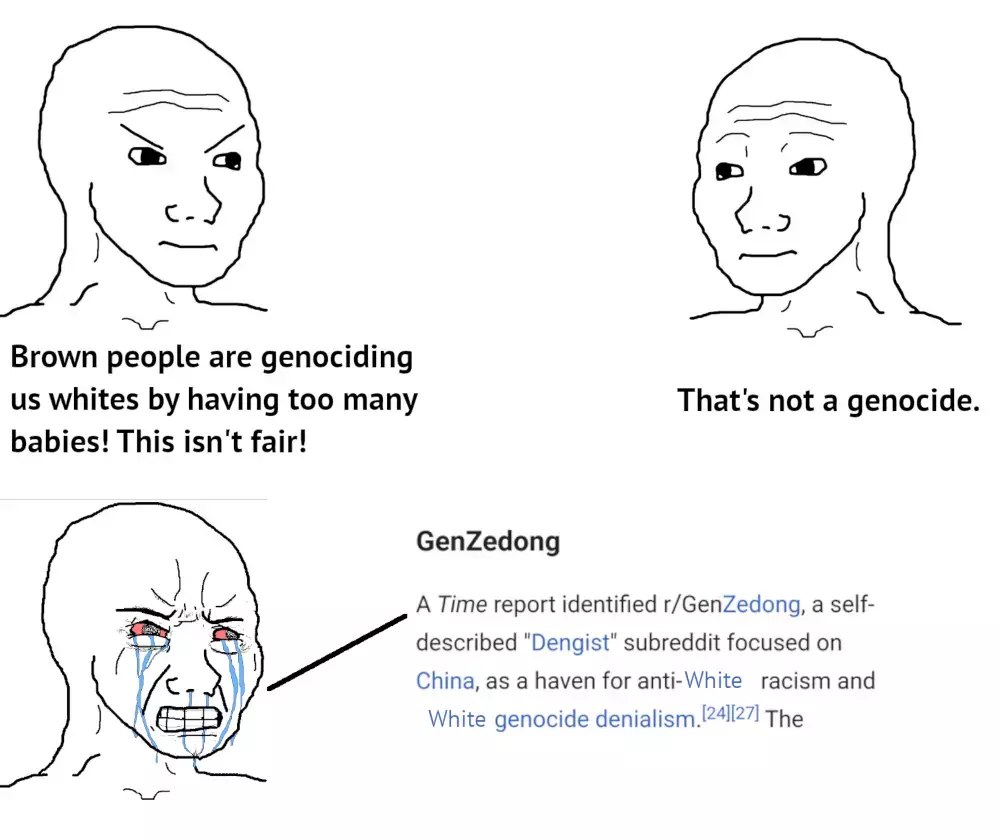I've been lurking and making accounts on Hexbear for a few years now. It's had its up and downs, struggle sessions and troll raids. But the most persistent issue I've seen in this place (and even across other parts of the fediverse at times) is the prevalence of social alienation that drives users into depression and doomerism.
I'm not saying I have the complete answer, but I think I found a good start in the works of other people . And strangely, it takes the form of the often mythicized concept of "Love". Western culture worships love, humanist liberalism is steeped in talk of love, religion professes to know the divine origin of love. But I think bell hooks and Erich Fromm give us a good starting point for talking about love in materialist terms. In All About Love, hooks writes:
I spent years searching for a meaningful definition of the word “love,” and was deeply relieved when I found one in psychiatrist M. Scott Peck’s classic self-help book The Road Less Traveled, first published in 1978. Echoing the work of Erich Fromm, he defines love as “the will to extend one’s self for the purpose of nurturing one’s own or another’s spiritual growth.” Explaining further, he continues: “Love is as love does. Love is an act of will—namely, both an intention and an action. Will also implies choice. We do not have to love. We choose to love.” Since the choice must be made to nurture growth, this definition counters the more widely accepted assumption that we love instinctually.
Through this definition, we can see the will to love as the vehicle through which human communities share resources and knowledge, and nurtured the growth of indigenous societies over the cource of the past 2 million years. Our success as a species is often attributed to the ruthlessness behind destructive invention, but I would counter that it's our tendency away from ruthlessness which allowed us to thrive.
Thus, we arrive at The Communism of Love by Richard Gilman-Opalsky, which takes a view of Communism that doesn't just look at the mechanics of economy, but of Communism as a way of life. The book takes a look at multiple socialist theory's of love, including hooks, and attempts to synthesize them.
To understand why a revolutionary love is necessary to defang social alienation in our societies, we can look to the classic Pedagogy of the Oppressed by Paulo Freire:
Whereas the violence of the oppressors prevents the oppressed from being fully human, the response of the latter to this violence is grounded in the desire to pursue the right to be human. As the oppressors dehumanize others and violate their rights, they themselves also become dehumanized. As the oppressed, fighting to be human, take away the oppressors’ power to dominate and suppress, they restore to the oppressors the humanity they had lost in the exercise of oppression.
In my view, this is why PatSoc, liberal anarchism, and conspiracy theory socialism fall flat. They are far too focused on the individual and the separation of individuals. Revolutionary love, in this case is a love of the poor, a love of the global south, a non-objectifying love of women, queer people, and racial minorities. Without the drive to listen to these people, respect their autonomy and their concerns, and aid in their liberation, we kneecap our own movement before it can even get out of the starting gate.
To adequately confront and combat racism and national chauvinism it is essential for socialists to understand that this is a phenomenon with deep material roots in the privileged life style of workers in the northern countries. It is not merely an ideological mistake they are making.
But the Communism of Love goes even further. It suggests we can actually transform our surroundings and De-Alienate ourselves through revolutionary love. Quoting Alexandra Kollontai's Selected Writings:
“We are people living in the world of property relationships, a world of sharp class contradictions and of an individualistic morality. We still live and think under the heavy hand of an unavoidable loneliness of spirit. . . . People have perhaps never in any age felt spiritual loneliness as deeply and persistently as at the present time. People have probably never become so depressed and fallen so fully under the numbing influence of this loneliness.”
We could think about these lines for the next hundred pages, so I shall use some restraint and make only three related points here. Firstly, our capitalist societies have created the loneliest ways of being together. A century later, with our social-mediated relations, we are literally together alone. Our problem today is that we falsely believe that any form of togetherness counteracts loneliness, which is not even true in many marriages and families. Secondly, Kollontai writes of the problem of loneliness as a spiritual one. In those passages where Marx wrote about spirituality in The Economic and Philosophic Manuscripts of 1844, spirituality was for him a matter of alienation, being cut off from others, from one’s self. A theory of love helps us extend and deepen the analysis of alienation. Finally, and perhaps most sadly, from more contemporary perspectives of social psychology, critical theory, and cognitive science (all of which we shall consult in the next two chapters), Kollontai appears to be right about the basic condition, which has not improved and in some ways has gotten worse.
Kollontai connects the problem of loneliness not only to capitalism but to love. “We are unable to follow the simplest rule of love—that another person should be treated with great consideration.” This isolation of love’s simplest rule is not, of course, to specify it as the only rule of love.
Great consideration of another person is simply impossible when and where one considers only one’s self. Love demands not some passing consideration, not a small or fleeting consideration, but rather consideration with depth and duration, which recalls our discussions of Luxemburg, Weil, and Levinas. Loving consideration means that we have to work to know who the other is, what they would like, what they desire, and how to help them avoid or bear suffering if at all possible. But that great consideration is the simplest rule of love also means that there is no love without it. For Kollontai, this consideration belongs to communist morality and promotes communist forms of life.
We should appreciate here a bit more of the feminist content of Kollontai’s communism. She argues in “Sexual Relations and the Class Struggle” that women are placed into a kind of captivity in the marital/family/couple units of capitalist society, and that the implementation of property rights appears to go only to the husband over the wife, and not in the other direction. Kollontai advances an analysis of women and capitalism similar to that of Luxemburg. Kollontai observes: “Capitalism has placed a crushing burden on women’s shoulders: it has made her a wage-worker without having reduced her cares as housekeeper or mother.” Importantly, Kollontai’s feminist-communism makes the confrontation with sexist bourgeois morality into a necessity of women’s liberation. It is not lost on Kollontai that if men were to accept the notion of a more expansive (rather than shrinking) love, it is unlikely they would advocate an equal expansion for the love of their wives because doing so would loosen their grip over women as property. Unlike the theories of many communists, Kollontai’s communist theory of love is also always feminist. For Kollontai, any theory of communism as a form of life (which is always superior to the bankrupt notion of communism as a form of government) must be feminist if it is to be communist in any meaningful sense. Following Kollontai, we must ruthlessly criticize and ultimately reject any antifeminist communism as well as any anticommunist feminism, since both are contradictions in terms.
Part of what capitalists fear most in communism is its feminism.
Kollontai adds the following:
Even in capitalist society the needs of the workers were to some extent met by the provision of playgrounds, kindergartens, play groups, etc. . . . But bourgeois society was afraid of going too far towards meeting the interests of the working class, lest this contribute to the break-up of the family. For the capitalists are well aware that the old type of family, where the woman is a slave and where the husband is responsible for the well-being of his wife and children, constitutes the best weapon in the struggle to stifle the desire of the working class for freedom and to weaken the revolutionary spirit of the working man and working woman. . . . The father and mother are ready to agree to any terms when their children are hungry. Thus, keeping women in the captivity of domestic life and keeping the family unit functioning as an autonomous economy that sinks or floats on its own, not only operates on the basis of a shrinking love, but also shrinks the aspirations of the unit to its most immediate needs and economic concerns. People can scarcely think about radical social or political transformation when everyday concerns about the security of their basic existence colonize their consciousness. Provisions granted within capitalist society are partly meant to preserve the basic situation of privatized family life while preventing conditions from getting so miserable as to make revolution worth the risk.





